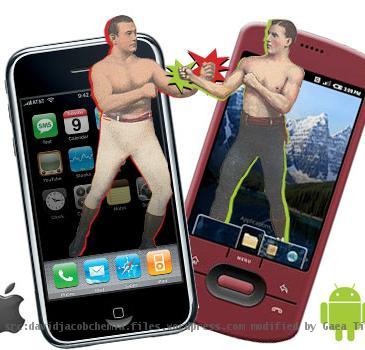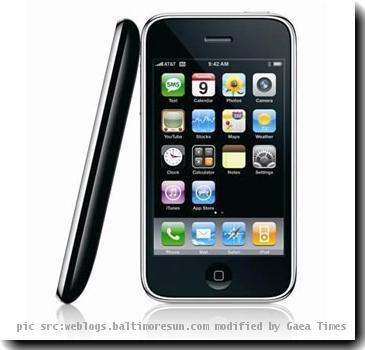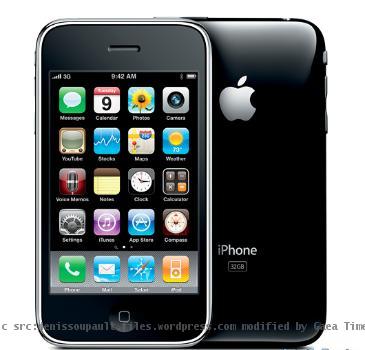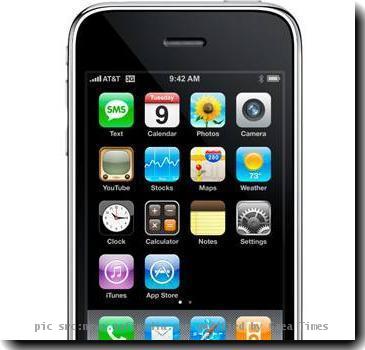‘Quiet’ smart phone maker HTC starts to build brand as it competes with iPhone
By Joe Mcdonald, APSunday, September 5, 2010
Taiwan’s HTC: iPhone’s ‘quiet’ challenger
BEIJING — East Asia is the world’s electronics factory, yet unless they are Japanese, producers are largely anonymous. Now HTC Corp., a Taiwanese maker of smart phones, is moving out of the shadows and trying to establish its own brand name as it competes with Apple’s iPhone.
HTC supplies U.S. carriers Verizon, Sprint and T-Mobile but says a year ago only one in 10 Americans knew its name. With the help of marketing by cellular carriers and HTC’s own television ads during the baseball World Series, HTC says that number is up to 40 percent.
“We want to be one of the leaders,” said John Wang, the 13-year-old company’s chief marketing officer.
In trying to establish a global brand, HTC is following in the footsteps of another Taiwanese company, Acer Inc., which is battling Dell Inc. for the title of second-largest personal computer maker. Other rising Taiwanese technology names include software producer Trend Micro Inc. and Asustek Computer Inc., a maker of PCs and cell phones.
HTC’s path to its own brand has been complicated by U.S. carriers’ preference for many years to market its phones under their own brands.
That started to change in 2007, and the “HTC” brand started showing up on phones, as carriers figured that the company had some cachet among early adopters that they could capitalize on. HTC phones on the U.S. market include the Droid Incredible, sold by Verizon Wireless, the HD2, sold by T-Mobile USA, and the Hero, sold by Sprint Nextel Corp.
Even now, HTC is careful to avoid straining ties with carriers by promoting its own identity too aggressively. Such ties are crucial in the United States, Japan and other markets where carriers usually pick which phones to offer. In Europe and elsewhere, customers pick their own phones and buy service separately.
“I don’t think it should ever become a ‘destination phone,’ because that is very arrogant,” Wang said.
The company’s slogan, “Quietly Brilliant,” expresses both modesty and pride.
Apple, of course, is anything but quiet, and HTC sets itself apart from the U.S.-based giant in other ways, too.
In contrast to lookalike iPhones, HTC tries to make handsets for every taste, some with slide-out keyboards, others with touch screens. While Apple has its own online store, HTC focuses on phones while carriers pick which music and applications to offer.
“This is positioning the vendor almost diametrically against the increasing perception of Apple as an egotistical and domineering company,” Seth Wallis-Jones, an analyst for IHS Global Insight, said in an e-mail.
“This is a contrast to a company that wants to do one phone only and say, ‘This is the one and you are going to love it and if you don’t, there is something wrong with you,’” Wang said.
In the U.S., HTC made a splash this summer by producing the first phone, the EVO 4G, that’s able to use a fourth-generation wireless data network. It’s sold by Sprint. HTC also manufactured Google Inc.’s first phone, the Nexus One.
“These really put the brand into the spotlight in the United States,” said Wallis-Jones.
Still, Apple has a daunting sales lead and HTC also faces competition from South Korea’s Samsung Electronics Co., Nokia Corp. and other rivals.
HTC was just behind Apple in the final quarter of 2008, selling 3.7 million phones to its American rival’s 4.4 million, according to Wallis-Jones. A year and a half later, Apple has pulled ahead, selling 8.4 million in the second quarter of this year, while HTC sold 5.4 million.
But HTC is seeing its sales jump. It expects to ship 6.5 million phones in the current quarter, more than twice the number it shipped in the same period last year.
HTC cut its teeth on smart phones that used Microsoft Corp.’s Windows Mobile software. But when Google released its Android smart phone software in 2008, HTC was the first manufacturer on board, and that’s paid off. Every U.S. carrier except AT&T, the home of the iPhone, is pushing Android phones as the alternative to the iPhone.
HTC is pitted against Apple in the legal arena as well. Apple sued HTC in March in the U.S., accusing it of violating 20 iPhone patents. In May, HTC filed a countersuit accusing Apple of violating five patents.
Among consumers, HTC needs to create a distinctive identity as more than a manufacturer, said Joseph Pai, chairman of advertising agency Ogilvy & Mather Taiwan.
“They get the technology right, but Apple is considered fun and creative and very bright,” said Pai. “HTC is quite serious. Their technology is good. They keep coming out with new products. But they need to find their own personality.”
HTC is working on that, trying to build a reputation for anticipating users’ needs and inventing appealing solutions, Wang said. The company calls that “HTC Sense” and says it wants to create “moments of delight.”
Its innovations include allowing users to group together friends’ e-mail, social networking and other contacts under their names, while the iPhone requires separate contact lists for each function. HTC phones can sense when they are in a pocket or purse and ring louder. The EVO has a tiny kickstand to stand upright for video conferencing.
HTC promotes itself as a cross-border brand, with no mention of its Taiwanese roots. The company holds major product launches in London or New York, rather than Asia.
“People don’t really think of Sony as Japanese any more. That’s what I envision HTC to be,” Wang said. “Eventually people will see HTC as a global brand, not necessarily from Taiwan or Europe or the U.S.”
Online:
www.htc.com
Tags: Asia, Beijing, China, Communication Technology, Computing And Information Technology, Consumer Electronics, East Asia, Greater China, Mobile Communications, North America, Products And Services, Software, Taiwan, United States



